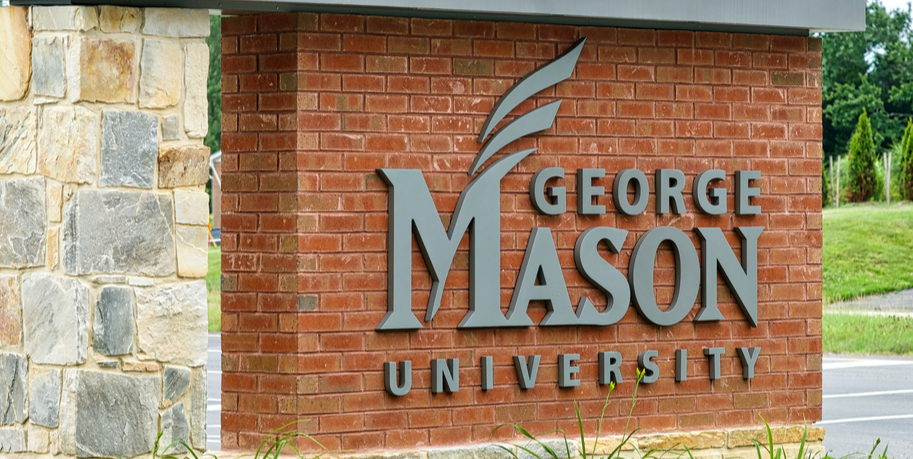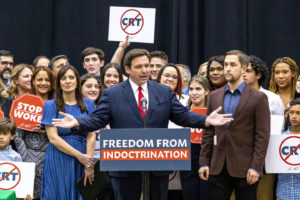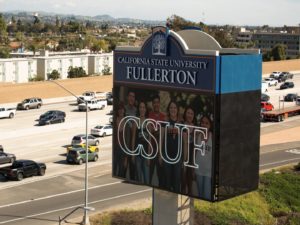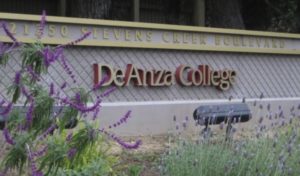GMU’s president gets it wrong: DEI has overtaken his school
(The Daily Signal) – Does having a bevy of officers who push race, sex, and LGBT victim/oppressor theories on university students enhance or detract from their learning?
This is the question…

(The Daily Signal) – Does having a bevy of officers who push race, sex, and LGBT victim/oppressor theories on university students enhance or detract from their learning?
This is the question that George Mason University’s president, Gregory Washington, never addresses in his unusually public criticism of our report for The Heritage Foundation on the extravagant “diversity, equity, and inclusion” bureaucracies he oversees at GMU. (The Daily Signal is Heritage’s news outlet.)
Instead, Washington claims that we overcount the resources his school dedicates to diversity, equity, and inclusion, or DEI, and argues that he actually isn’t 100% all in on DEI—just mostly all in.
Even if he were correct about the numbers (and we explain below why he isn’t), the burden is squarely on GMU’s president to justify why spending on divisive programs that breed anxiety and resentment among students should be anything other than zero.
Washington was so concerned by our exposé that he emailed all 40,000 GMU students Tuesday afternoon with an attempted rebuttal. But Washington doth protest too much, and we stand behind our findings.
We start by noting that Washington fails to acknowledge that GMU endorses one-sided and extreme ideological content as evidenced on the university’s own websites, including pages urging students to sign petitions in support of passage of specific legislation, vote for certain kinds of politicians, and donate to advocacy organizations with radical agendas.
As our report pointed out, George Mason University hosts a “Black Lives Matter” website that endorses racially discriminatory behavior. It is inappropriate, we said, for a university funded by taxpayers of all political persuasions to ask for donations to such causes as defunding the police or diminishing the family, particularly at a time when American cities are gripped by a horrendous crime wave that can be directly traced to family destruction.
Washington’s silence on all this speaks volumes. We equally take his studied attempt to downplay any support of DEI itself as a testament to the toxicity surrounding these practices.
Therefore, again, we remain curious to know whether, as GMU’s president, Washington believes that taking political positions such as this with university resources is an appropriate role for a public university.
And if Washington believes it is, we would like to know why GMU selected these pieces of legislation and these politicians and advocacy organizations for endorsement and not others.
Now, in response to Washington’s three stated concerns with our report:
1. Number of DEI staff at GMU: Washington no longer insists that George Mason University only has 17 DEI employees, as he did in an email to all faculty Friday evening. But he does allege that “the report grossly overstates the number of DEI staff at 69.”
We published 20 of GMU’s DEI job titles in our report and publicly posted all 69 on Saturday evening. Even after that, Washington continues to claim that we came up with more than three times too many DEI personnel by including outdated positions, double-counting positions, counting faculty who didn’t have DEI bureaucracy roles, and including “an overwhelming number of part-time student positions.”
We took all 69 job titles from GMU websites and publicly posted links to where these titles may be found. We also have 65 unique names that we did not post, out of respect for privacy. But we would be happy to share those names with Washington if he is unable to identify all of those working to promote DEI at the university he runs.
Four names are repeated because they were listed on different websites with different roles that might have been filled by someone else and not yet updated on the websites. Some of the 69 individuals also may hold faculty positions, but all of them had roles and job titles as part of DEI bureaucracies.
Our definition of DEI staff in the study excluded faculty members whose responsibilities were focused on the core university responsibilities of teaching and research. However, we clearly included student interns in DEI roles as part of our definition of DEI staff.
Only 17 of the 69 positions are held by GMU graduate or undergraduate students, not “an overwhelming number,” as Washington alleges.
These students are properly included in our count. GMU itself seems to believe the contributions of these students are significant, since its own websites list the students under the heading “staff” or “professionals.”
If Washington continues to insist that the correct number of DEI positions at GMU is “less than a third” of the 69 we listed, we would like him to publicly post all the job titles of those he believes should be counted, along with links to where their positions may be found.
We also expect that this list of fewer than 23 DEI job titles (which Washington must have in his coat pocket) would include those with specific responsibilities to serve veterans, students with disabilities, international students, low-income students, students who are parents, first-generation students, and those from many religious traditions.
We include none of them in our list of 69, but they do fall within the expansive definition of diversity, equity, and inclusion that Washington offered in his email to faculty Friday evening.
We note in passing that veteran heroes generally chafe at being included on lists of victims or “oppressed” groups.
2. Indexing DEI staff to tenured/tenure-track faculty: Washington also objects to our comparison of the size of each Virginia university’s DEI bureaucracy to the number of tenure-track and tenured faculty at the school to gauge which institution has the largest DEI bloat.
The reason we focus on tenure-track faculty is simple—it represents the magnitude of each university’s commitment to employing long-term staff to fulfill the core responsibilities of teaching and research. The more a university devotes resources to those promoting DEI rather than serving these core responsibilities, the more wasteful the institution is.
Washington’s argument that George Mason University has an especially large number of adjunct and temporary instructors who contribute far less to research and mentoring of students isn’t the point that most university presidents would choose to highlight. His argument also doesn’t demonstrate GMU’s commitment to its core responsibilities as opposed to promoting DEI.
One doesn’t usually find words such as “Leading the nation in the number of temporary teachers!” in the text of universities’ promotional brochures.
3. Including GMU with Power 5 schools: Washington objects to our comparing the size of his DEI bureaucracy to those found in universities that belong to one of the Power 5 athletic conferences.
In 2021, we chose to collect information on the size of DEI bureaucracies at the 65 universities that at the time were members of one of the Power 5 conferences. We described the reasons for selecting those universities for examination:
The focus was on these universities because they tend to be large, public institutions chosen by many students simply because of geographic proximity. These universities tend not to be highly selective institutions with explicit DEI missions intended to attract ideologically aligned students. Instead, Power 5 universities tend to be mainstream institutions that students select—and state legislatures support—without much thought to their political and cultural aims. … These 65 universities serve over 2.2 million students, representing about 16% of all students enrolled in four-year universities, thereby presenting a broad picture of higher education.
When we expanded our data to highlight the size of DEI bureaucracies in Virginia’s public universities, we included GMU because it met all these criteria.
“George Mason University belongs to the Atlantic 10 Conference, which is not among the Power 5,” Washington observed. That is relevant to GMU’s share of sports broadcasting revenue, but is not disqualifying for our purposes.
We are pleased that Washington says he still would like to meet to discuss these issues further. He offers to give us “an orientation” on diversity, equity, and inclusion. If this DEI orientation is anything like what GMU freshmen have to endure, though, we’ll pass.
If, instead, Washington is open to having a real discussion in a public forum about how much and what kind of DEI content is sponsored by George Mason University, we’re happy to join that debate, receipts in hand.



